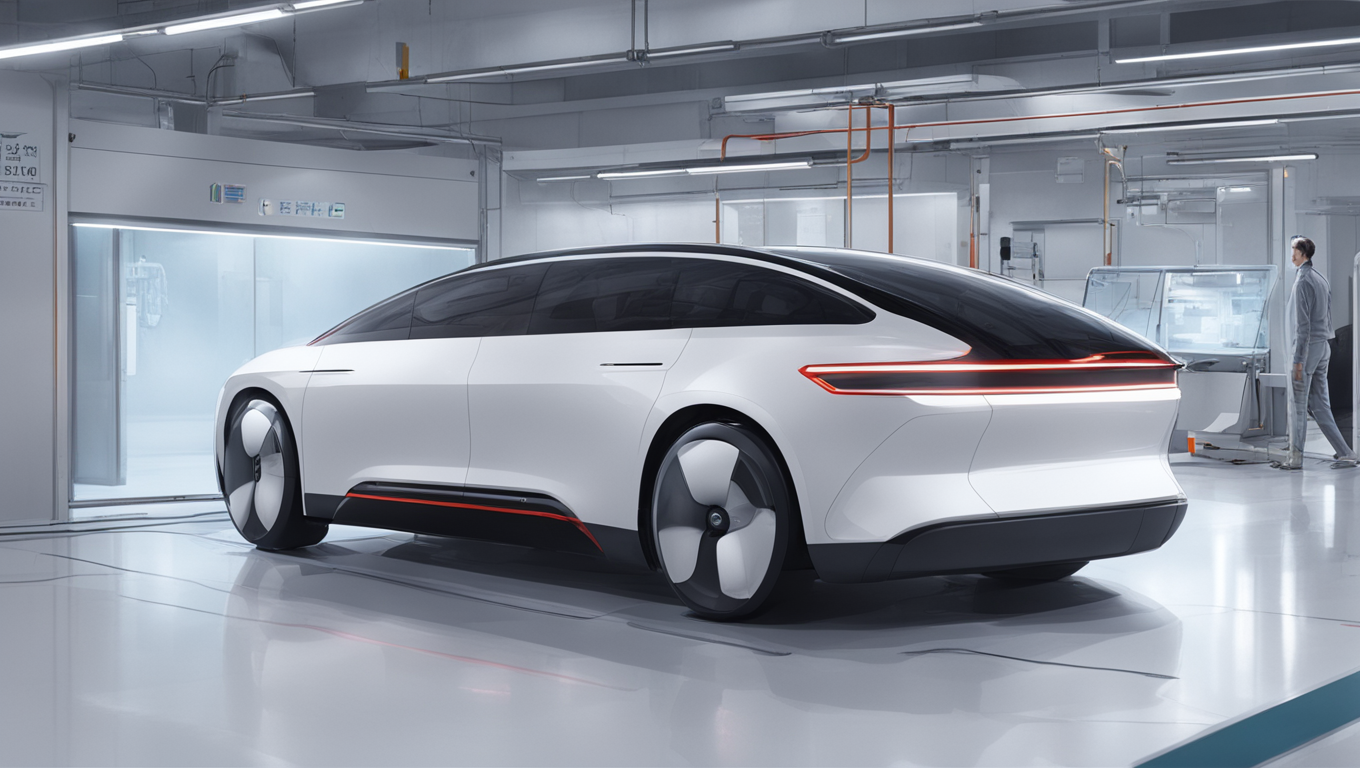China Takes the Lead in Autonomous Vehicle Trials, Paving the Way for Economic Growth
In a bold move to solidify its position as a leader in the global automotive industry, China has given the green light for leading carmakers to test autonomous driving systems on restricted roads. This announcement by the Ministry of Industry and Information Technology (MIIT) and three other government agencies signifies a significant step towards transforming China’s 10 trillion yuan (US$1.4 trillion) automotive industry and highlights the immense potential for future economic growth.
Nine manufacturers, including BYD, the world’s top electric vehicle producer, as well as Nio, Changan Automobile, and GAC Motor, have been selected to participate in the pilot program. This program focuses on testing level three autonomous driving systems, which according to the Society of Automotive Engineers International, allow cars to be conditionally self-driving without human intervention unless in case of an emergency. It is important to note that this phase is limited to the selection of manufacturers for pilot applications and does not grant permission for autonomous vehicles to operate on public roads.
The MIIT emphasizes that this pilot program will accelerate the mass production and application of smart internet-connected vehicle products. It aims to drive the integration of the automotive, new energy, artificial intelligence, and information and communication industries. With the approval of the pilot program, manufacturers will utilize data to enhance autonomous driving technologies, establish industry standards, and assist governments in developing legislation, regulation, and infrastructure.
China has been a front-runner in the electric vehicle sector, having become the world’s leading manufacturer of EVs after making a decisive bet on the new energy wave a decade ago. However, the country is now seeking new areas of growth, including autonomous driving, given heightened trade frictions and the emergence of disruptive technologies. By building a more comprehensive EV ecosystem and delving into autonomous driving, China aims to support future economic growth and maintain its competitive edge in the global market.
Gary Ng, a senior economist at Natixis Corporate and Investment Bank, explains that the Chinese government’s primary motive for launching this program is to enhance the competitiveness of the EV sector. Unlike many other industries in China, the EV sector has consistently received significant support, but it also faces geopolitical headwinds. Ng suggests that by offering good products at a low cost, China can mitigate the potential impact of trade barriers or tariffs on its EVs, allowing the country to retain its position in the global market.
The revenue generated by Chinese carmakers reached 10.1 trillion yuan in 2023, with a year-on-year increase of 11.9%. The industry is undergoing a transition towards new energy and smart technologies while producing and exporting the highest number of new energy vehicles in the world. Recent reports indicate that tech firms like Huawei Technologies, Xiaomi, and DJI are also aggressively entering the driverless car industry, suggesting a growing interest and potential for collaboration between the EV sector and tech firms.
As part of its commitment to promoting autonomous driving, Beijing has designated specific roads suitable for testing in cities such as Beijing, Shenzhen, and Hangzhou. Chinese EV manufacturers are ramping up the adoption of autonomous driving technology, with the utilization rate of vehicles equipped with automation of level two and above reaching 62.5% in the first two months of this year, compared to 55.3% last year, according to the China Passenger Car Association.
China’s move to accelerate autonomous vehicle trials not only positions the country as a global leader in the automotive industry but also stimulates future economic growth. By investing in cutting-edge technologies like autonomous driving and fostering collaboration between the EV sector and tech giants, China is laying the foundation for a comprehensive and forward-thinking automotive ecosystem.
The autonomous driving sector is advancing rapidly, and China’s commitment to empowering the industry through trials and regulations will propel the country towards the forefront of this technological revolution. As the world watches China’s progress, the possibilities for the future of transportation and the wider impacts on society are boundless. China’s ambition and determination to drive innovation in autonomous vehicles will undoubtedly shape the trajectory of the entire automotive industry.





Use the share button below if you liked it.